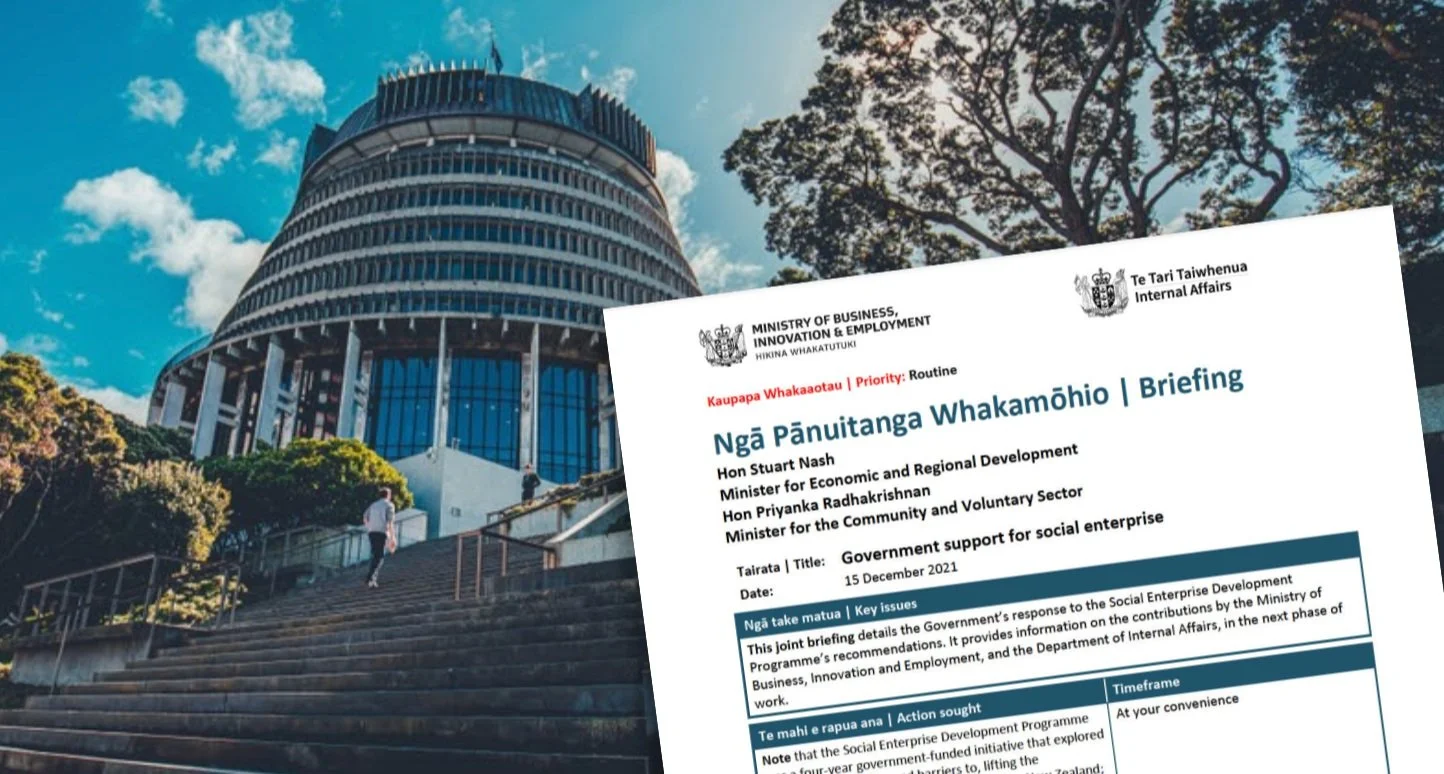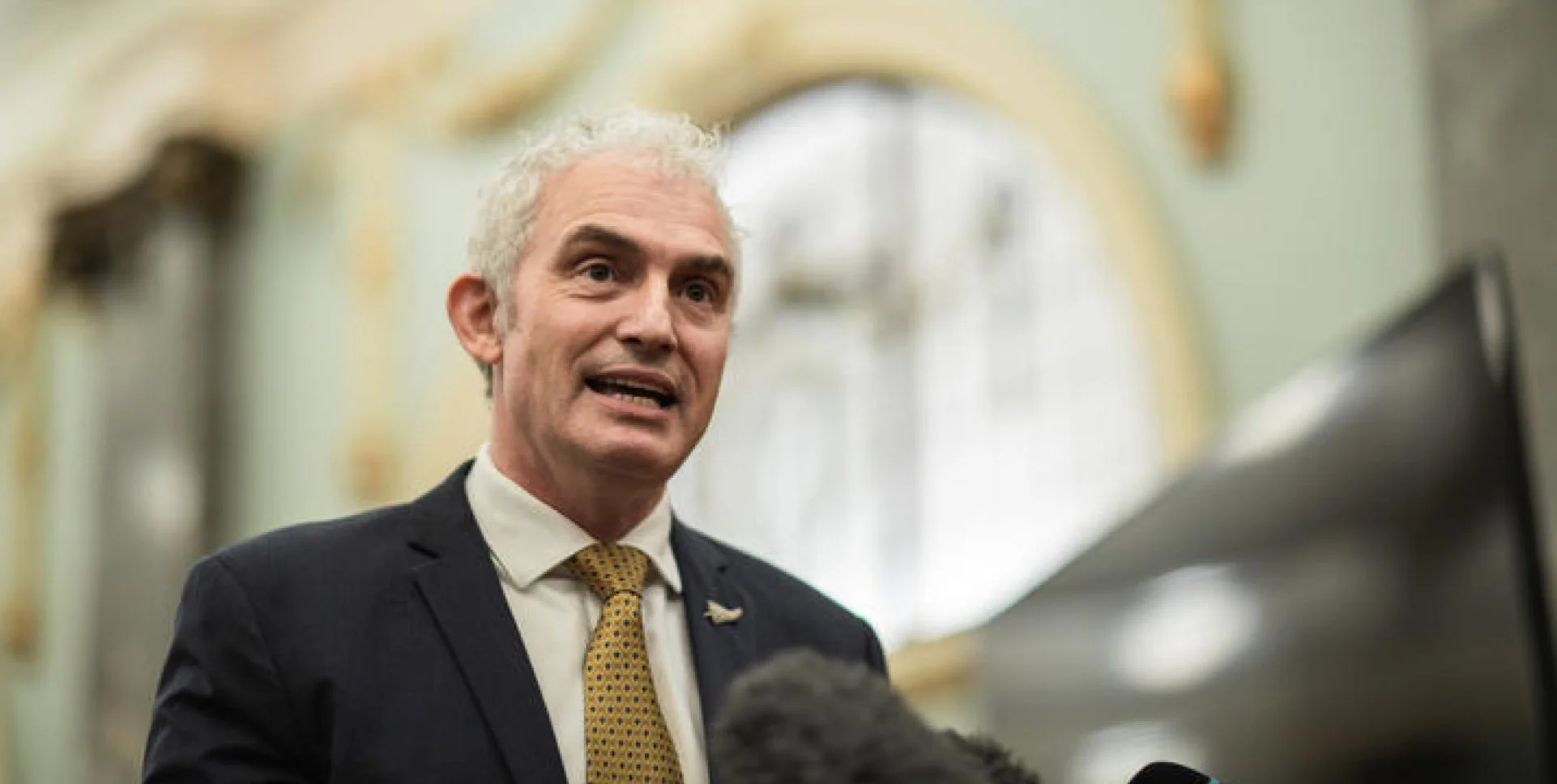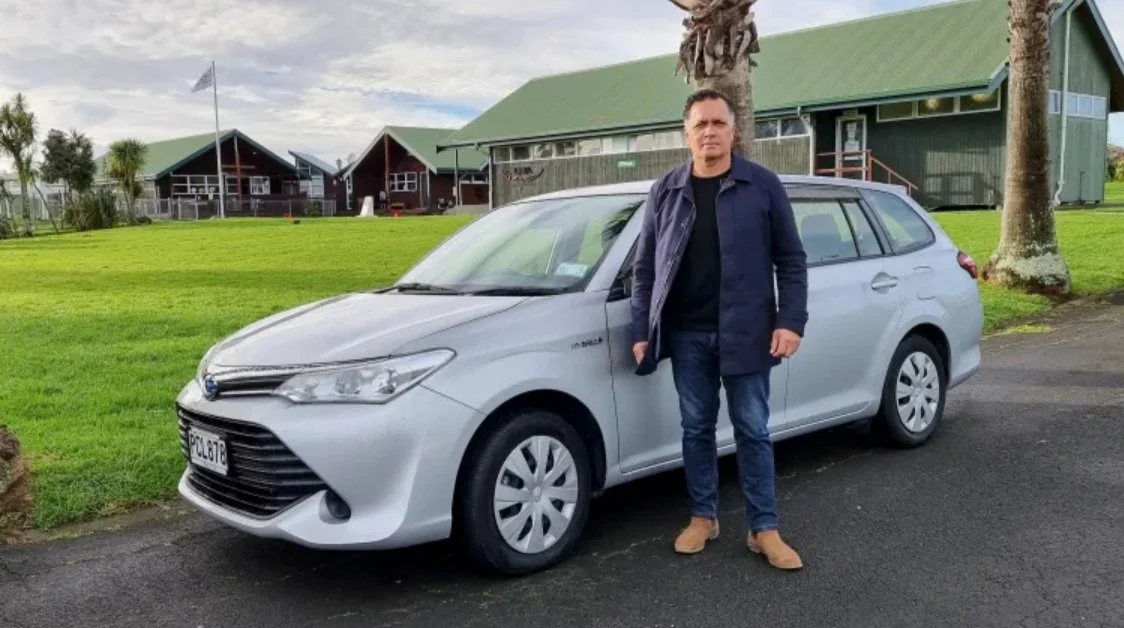Aotearoa is under pressure. It is time for the Government to act on purpose-led business.
A recent Ministerial briefing paper responds to The Impact Initiative recommendations, but what will change for social enterprises? asks Ākina CEO Nicola Nation.
Over twelve months on from wrapping-up a milestone Government programme on social enterprise there’s still much to be done, writes Ākina CEO Nicola Nation.
As we cautiously look ahead to a post-pandemic Aotearoa New Zealand it’s hard not to feel daunted by challenges like inflation and the rising cost of living, a health system under pressure and the need to respond boldly to climate change. These are complex challenges that the Government cannot solve alone.
Luckily Aotearoa is full of purpose-led businesses, like social enterprises, that are working hard to make lives better and improve our environment. They sit across all sectors of our economy, and they’re developing innovative solutions to our most challenging problems.
This April marked one year since we officially wrapped up The Impact Initiative – also known as The Social Enterprise Development Programme. This was a three year, $5.5m programme delivered by the Ākina Foundation and the Community Enterprise Network Trust (CENT) in partnership with the Government to determine the best ways to support social enterprises to address the social, environmental and economic challenges New Zealand is facing.
Working together across government and with social enterprise representatives, we delivered a series of recommendations articulating what the Government could do to continue to support and accelerate the growth of purpose-led businesses in Aotearoa. It’s all outlined in our final report A Roadmap for Impact. We undertook three years of research, testing, and advocacy for the simple reason that Aotearoa needs more businesses that are working to make things better. Surely, it’s a no-brainer.
But, more than twelve months on from the end of the programme, with no targeted support unveiled in the Budget, and a lacklustre Government response to The Impact Initiative recommendations, social enterprise remains a significant untapped opportunity for change.
Ākina CEO Nicola Nation at a 2021 event to wrap-up The Impact Initiative, the three-year Government funded programme to develop social enterprise.
The Government response
The Government response to the recommendations was publicly released 11 months after the programme ended in the form of a Ministerial briefing paper to Ministers Priyanca Radhakrishnan (Minister for the Community and Voluntary Sector) and Minister Stuart Nash (Minister for Economic and Regional Development).
The briefing paper left us and many others in the social enterprise sector somewhat underwhelmed – not least because it’s a paper for ‘noting’, rather than asking for approval to take any specific action.
First, the positives. The paper notes that the recommendations sit largely in line with current and proposed Government policy. Good. We need alignment in order to make progress. In addition, the paper notes that subsequent actions relating to social enterprise will be taken in the context of existing work programmes within agencies. Broadly speaking, this is also a good thing insofar as it states that future action will be taken. However, it also implies that enough is being done already (or will be done soon) and that additional action isn’t required. We disagree.
There are a range of specific, small and relatively inexpensive actions that could be taken to make an immediate and tangible difference for those enterprises in Aotearoa that are working to improve lives and the environment.
Hon Stuart Nash was one of the ministers to sign-off the Ministerial Briefing Paper on Government support for social enterprise.
Three things the Government can do right now to accelerate for-purpose businesses and social enterprises:
Establish a ‘home for social enterprise’ within MBIE. This could be as simple as a single official in the right team to help progress measures targeted at social enterprise within relevant work programmes. It is true that many social or impact enterprises are also registered charities, and DIA can support some with grant funding in a limited way. However, our view is that ‘for-purpose’ businesses like social enterprise are the future of business and that therefore MBIE is the most logical home within government. Being ‘caught between’ two agencies creates uncertainty, and perpetuates a lack of clarity on who should be leading initiatives that improve conditions for impact businesses.
Support the establishment of a sector leadership group. The official or team within MBIE would provide secretariat support and a modest budget for expenses like travel, to enable sector leaders to come together to give a voice for enterprises that create impact. This was trialled successfully throughout The Impact Initiative with a ‘sector working group’. Continuing this idea would be a simple way to continue to increase advocacy and awareness whilst sharing insights with government. This idea is fleshed out in more detail in recommendation 15/5.2.
Co-fund an impact investment readiness programme. The Ākina programme has a five-year track record of helping impact businesses upskill, to get ready to take on investment. With partners Foundation North, Kiwibank, WEL Energy Trust, The Tindall Foundation and Rotary Wellington we’ve given out $795,000 that has directly supported businesses to raise over $49m – a return of over 62 times the amount granted. Find out more on this infographic. The briefing paper mentions that other schemes like the Regional Business Partner scheme and InvestEd are filling this need – that is not the case. Those are not targeted to support impact organisations, instead asking them to compete with traditional for-profit businesses for resources. This need not be a scheme run by Ākina, there might be others interested in delivering a larger impact investment readiness programme similar to those delivered in Australia. We’re pushing for proper access to targeted support; we’re not in it for the money.
Reasons to be hopeful: three encouraging signs that progress is possible
Despite remaining largely non-committal on The Impact Initiative recommendations, there have been a few areas over the past 12 months where we have seen the Government involved in positive change in line with what The Impact Initiative programme was advocating for. It’s well worth celebrating this progress and pointing to it as a sign that change is possible, we just need to keep going.
Moving Government procurement towards social procurement. The top three Impact Initiative recommendations were all about procurement. This year we have been working closely with NZ Government Procurement on their Future of Procurement programme, including the innovative initiatives across government that can be progressed at pace. This will help advance Broader Outcomes in government procurement. This matters for impact businesses as the Government spends over $51 billion every year, but also because the Government has the power to create change in supply chains across the public and private sectors, opening up greater contract opportunities for enterprises that create impact.
Tools for impact-led businesses on business.govt.nz. Last year we were very pleased to work with the business.govt.nz team on ‘Doing Business for Good’ – a suite of tools specifically aimed at for-purpose businesses; check them out online. Although more work is needed to provide a wider range of more in-depth guidance and resources, this is an excellent start on recommendation 11/4.1 and work we’d be very keen to see continue.
The Emissions Reduction Plan includes $20m for a car leasing scheme trial. Ākina successfully lobbied for this recently announced funding, which shows how the Government is prepared to invest in social enterprise models that solve environmental or social challenges, as outlined in recommendation 7/2.4. The Manukau Urban Māori authority (MUMA) is currently running a car leasing pilot which makes low emissions vehicles affordable for whānau in Manukau through a scheme called Waka Aronui. Ākina was involved in establishing this scheme which is being generously supported by partners like Toyota, The Tindall Foundation, Waka Kotahi, MBIE and Auckland Council. Increased funding for this or similar programmes will enable us to determine how strategic interventions by the Government can support just transitions whilst also creating social impact like increased financial resilience and community participation in the case of Waka Aronui.
MUMA Group Operations Manager John Cameron at Ngā Whare Waatea Marae with one of the cars used in the Waka Aronui car leasing programme. Funding for testing a scheme like this was recently announced in the Government’s first Emissions Reduction Plan.
There are other signs that the Government is beginning to realise the opportunity presented by social enterprises. MBIE is currently consulting on a Long-Term Insights Plan to be delivered to the House of Representatives at the end of the year. One of the significant trends they’re investigating is ‘purpose-led business’; social enterprise by another name. It is encouraging to see that they have drawn insights from The Impact Initiative, and are posing some really important questions about the role of Government in offering support. We do not believe that we need to wait to support purpose-led business, the model is proven and the benefits are clear. The Government should act now. I urge anyone who feels the Government should do more for social enterprises to make a submission on the briefing.
The risk of course is that impactful businesses with huge potential have to wait another year or longer for the support they need to scale. But, calls for change are growing louder – there are several organisations out there advocating for progress, notably Flaxroots, the Social Enterprise Enablers Network of Aotearoa who have recently published an open letter on the Government’s response to the recommendations. We encourage you to add your voice to calls for support.
When we look at the urgency of challenges like New Zealand’s mental health crisis, our cost of living crisis, and the importance of quickly lowering emissions, it is clear we cannot keep waiting. Aotearoa needs accelerated social enterprise solutions, and we need them now.
More information
To find out more about social enterprise, see the this tool on The Impact Initiative website What is a Social Enterprise?, or for more examples check out last year’s Impact Investment Readiness Programme recipients, or the The Impact Enterprise Fund portfolio companies.
A note on recommendation numbers
The recommendations are listed using two numbering systems, with the first number being from the Ministerial Briefing Paper and the second number from the report A Roadmap for Impact.
A note on the term ‘social enterprise’
Ākina has a working definition that describes social enterprises as purpose-driven organisations that trade to deliver positive social, cultural and environmental impact. Not all businesses that could be considered social enterprises use this term to describe themselves. Some might refer to themselves as impact businesses, a for-purpose businesses, a community enterprise, a whānau or Māori business or something else. In this piece we have also used the term purpose-led business to refer to organisations that pursue the creation of positive impact. This term is increasingly used by The Government, notably in the upcoming MBIE Long-Term Insights Briefing.




